Kurdish PKK warns Turkey of long fight for freedom
- Published
Cemil Bayik says the PKK is open to negotiations, but will not surrender
The Kurdish rebel PKK movement has told the BBC that it is ready to intensify its fight against Turkey because Ankara is trying to make it surrender.
Kurdistan Workers' Party (PKK) leader Cemil Bayik said President Recep Tayyip Erdogan was "escalating this war".
"The Kurds will defend themselves to the end, so long as this is the Turkish approach - of course the PKK will escalate the war," he said.
Separately, an aide to Mr Erdogan ruled out any negotiations with the PKK.
Turkish presidential adviser Ilnur Cevik told the BBC's Mark Lowen that the PKK was "trying to create a separate state in Turkey - this is outright secession".
When asked if there was any chance of negotiation, he replied: "At the moment, no".
Government advisor Ilnur Cevik says at the moment there is no chance Turkey will negotiate with the PKK
He added that Mr Erdogan had popular support for the military campaign.
But Mr Bayik, the PKK's military leader, insisted that "we don't want to separate from Turkey and set up a state".
"We don't want to divide Turkey. We want to live within the borders of Turkey on our own land freely... The struggle will continue until the Kurds' innate rights are accepted."
He said Turkish intransigence had made the PKK ready to escalate the conflict "not only in Kurdistan, but in the rest of Turkey as well".
Region in turmoil
A two-year-old Turkey-PKK ceasefire broke down last July. Since then clashes have escalated, including Turkish air force strikes against PKK bases in northern Iraq.
The human cost of the PKK conflict in Turkey
Turkey, the EU and US refer to the PKK as a terrorist organisation. The military has imposed curfews in parts of Kurdish-majority south-eastern Turkey.
According to the International Crisis Group, more than 340 members of Turkey's security forces have since been killed, along with at least 300 Kurdish fighters and more than 200 civilians.
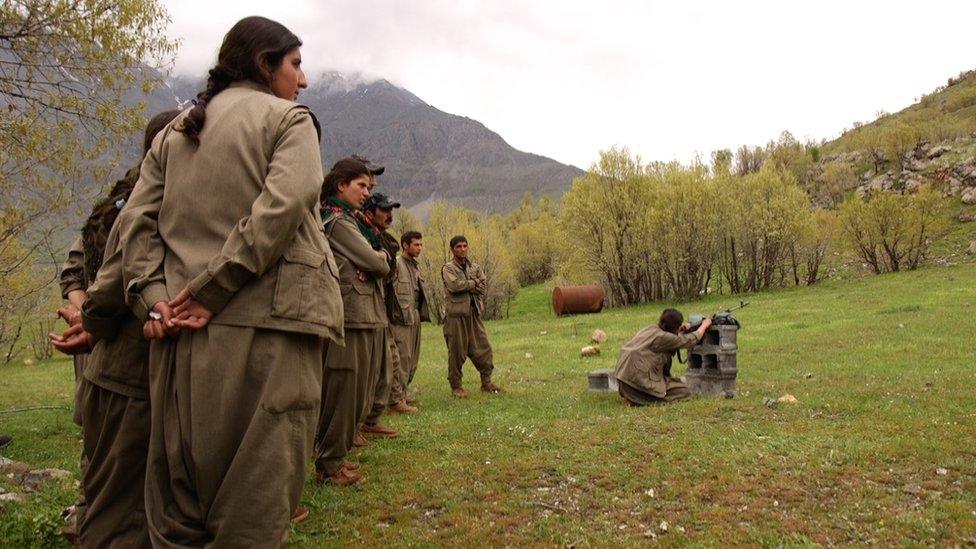
The PKK operates from mountain bases in northern Iraq

Turkey v PKK - in quotes:
Ilnur Cevik, chief adviser to Turkey's President Erdogan: "What they [the PKK] are doing at the moment is trying to create a separate state in Turkey. This is outright secession.
"We are going to struggle right to the bitter end to stop this. And the Turkish people are now determined - public opinion polls say. They say, 'don't stop'."
PKK leader Cemil Bayik: "He [President Erdogan] wants the Kurds to surrender. If they don't surrender, he wants to kill all Kurds. He says this openly - he doesn't hide it.
"The Kurds will defend themselves to the end, so long as this is the Turkish approach - of course the PKK will escalate the war. Not only in Kurdistan, but in the rest of Turkey as well."

Speaking in northern Iraq, Mr Bayik said the struggle for Kurdish rights "can only be resolved through negotiations" - but the PKK would only negotiate "if the Turkish state gives up its genocidal politics".
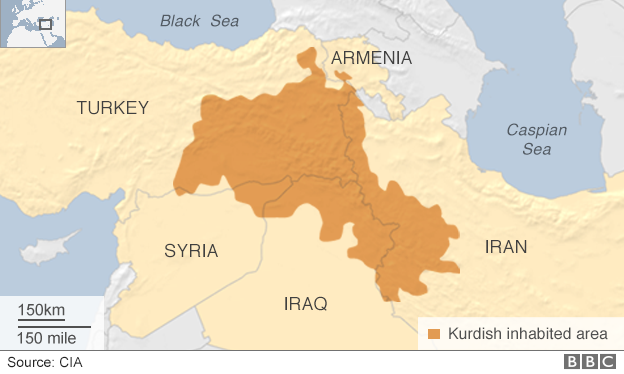
The PKK's political leader Abdullah Ocalan was jailed by Turkey in 1999. Mr Bayik said Turkey must improve Mr Ocalan's prison conditions before any ceasefire talks could take place.
"For over a year there have been no visits to him, there is no information on or from him. There cannot be any negotiations under these circumstances."
Mr Bayik said "there is no concrete contact at the moment" with the Turkish authorities. "There have been calls made to us. Letters have been sent to us to stop the war and we answered them," he said, refusing to specify who had approached the PKK.
Ankara bombings
An offshoot of the PKK called TAK (Kurdistan Freedom Hawks) said it carried out a bomb attack last month that killed 37 people in a busy commercial district of the capital Ankara.
TAK called it retaliation for Turkey's military crackdown in the mainly Kurdish city of Cizre. TAK also said it carried out a suicide bombing against a military convoy in Ankara in February that killed 28 people.
When asked about those bombings, Mr Bayik said they were "nothing to do with the PKK - TAK carries out these actions".
"TAK is another organisation - we don't know who belongs to it."
The Turkish government has condemned not only the PKK but also the Kurdish HDP (People's Democratic Party), which won 59 seats in the 550-seat Turkish parliament in November.
Mr Erdogan accuses the HDP of supporting the PKK.
The PKK launched an armed struggle against the Turkish state in 1984, in a push for Kurdish independence. More than 40,000 people have been killed in the conflict.
Mr Cevik said that "once... the PKK has been driven out, then Turkey is going to start talking not to the PKK or HDP or whatever, but to Kurdish opinion leaders, serious people".
The lull in fighting before last July had been used by the PKK to boost its presence in south-eastern Turkey, he alleged. "They took us for a ride, they took Erdogan for a ride... he had no idea he was going to be double-crossed like this."
- Published5 April 2016
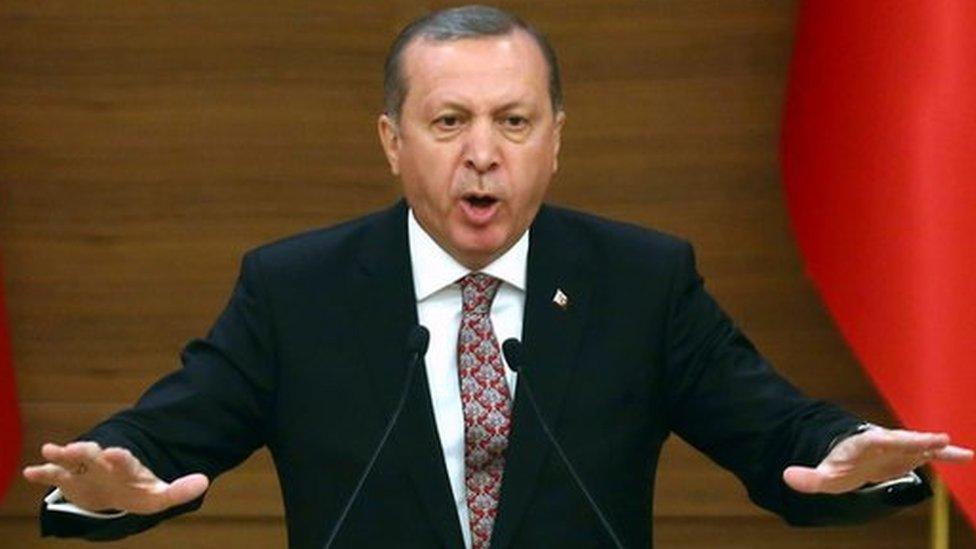
- Published17 March 2016
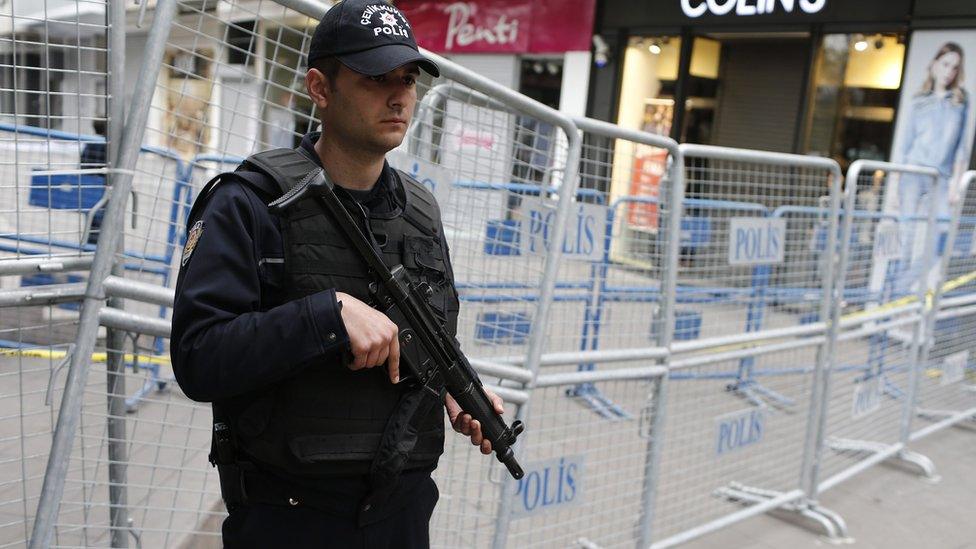
- Published14 March 2016
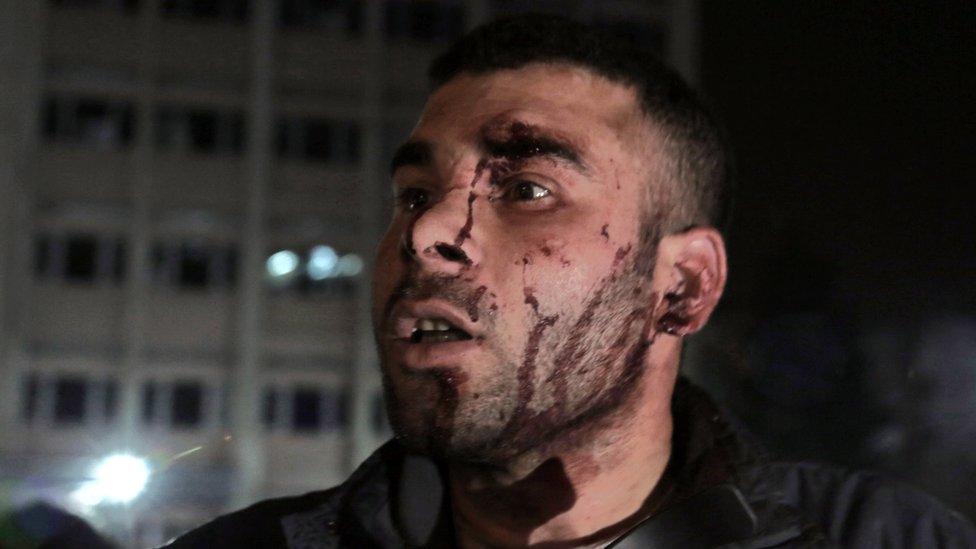
- Published23 August 2016
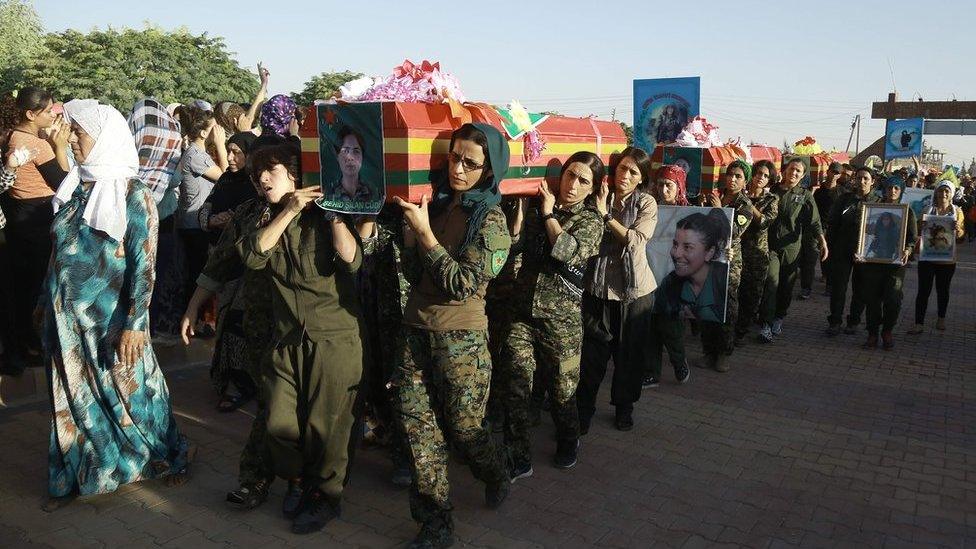
- Published22 August 2023
